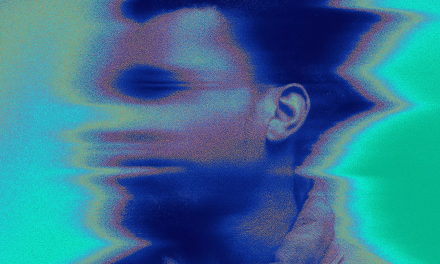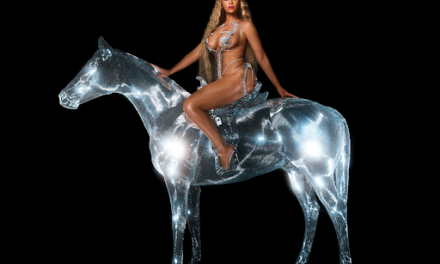Four years. It has been over four years since Frank Ocean captured the hearts of fans with his studio debut album, Channel Orange. The R&B singer-songwriter embarked on a mere 14-date North American tour and disappeared from the public eye soon after its completion. Three years later, after almost zero musical output, Ocean posted on his Tumblr, proclaiming “I got two versions,” with hashtags “#BoysDontCry” and “#July2015,” leading fans to believe an album was finally on the way. However, over a year passed, and there was still no hint of anything from Ocean.
Suddenly, on Aug. 1, 2016, a livestream appeared on Apple Music and Ocean’s website, a black-and-white video of Ocean building a staircase. Shortly thereafter, The New York Times reported that Ocean’s album was coming within the week. A week went by, and there was still no album. Seventeen days later, the livestream began to play song snippets in the background of Frank’s carpentry, ending three hours later with the release of visual album Endless. Days later, the highly anticipated Boys Don’t Cry (now entitled Blonde) was released Aug. 20 as an Apple Music exclusive, fulfilling the promise made more than a year before that Frank “got two versions.”
Ocean’s proclamation of “two versions” is a particularly apt one in the case of Blonde. Ocean’s career has been defined by duality, beginning with him coming out as bisexual in 2012, along with the release of Channel Orange. His public persona is reserved and withdrawn, a stark contrast to the raw emotion and signature falsetto that pepper his music. Even the cover of the album is stylized blond, while the official album title is Blonde, taking advantage of one of the few English words to feature grammatical gender to highlight a gender dichotomy. Ocean has defied expectations and has delivered something that, while radically different from any of his previous projects, still feels uniquely Frank Ocean.
Blonde is a marked shift from the crisp and polished production of 2012’s Channel Orange. Channel Orange is a roaring love story about heartbreak and pain. The lush instrumentation and maximalist orchestration that were such key features on Channel Orange are absent on the grimy and uncompromising Blonde. Grandiose John Mayer guitar solos and showering string sections are replaced with atmospheric, sparse instrumentation, generally featuring only one or two instruments to accentuate Ocean’s vocals. The production, at times, is notably lo-fi with grungy, distorted guitar and warped synths. The instrumentals can be jarring, and on songs like “Pretty Sweet,” the layered, distorted vocals and discordant guitar make the listener uneasy, only to suddenly break into an ethereal and atmospheric instrumental.
From the first track, “Nikes,” Ocean delivers raw emotion and unyielding personality. When Ocean softly sings, “I’ll sleep between y’all, it’s nothing,” the instrumental wanes, and the listener understands the pain that Ocean is experiencing with his lost love. In this intensely personal album, Ocean chooses to keep features to a minimum, even omitting them from the tracklist. Beyoncé provides background vocals for “Pink + White,” and one of the only pronounced features on the album is André 3000 on “Solo (Reprise).”
André 3000 covers a multitude of topics in “Solo (Reprise),” despite it being only one minute and 19 seconds long, with rapid fire flow centering on the motif of him being “solo [so low].” André 3000 mentions the current turmoil in the United States, saying that he’s “so low that [he] can admit/When [he] hear[s] that another kid is shot by the popo/It ain’t an event no more.” Many thought the closing bars of the song were directed at Drake, whose very public ghostwriting scandal may have inspired André 3000 when he raps “After 20 years in, I’m so naive/I was under the impression/That everyone wrote they own verses.” André 3000 continues the pained theme of the project, closing his verse with “I’ve stumbled and lived every word/Was I working just way too hard?”
Where Channel Orange was a marketable album with pop sensibilities, Blonde is distinctly not. There is no radio-ready single, no “Thinkin Bout You” to propel Blonde to the top of the charts. As a matter of fact, there is arguably not a single song that would succeed as a radio single. The result is something that may polarize fans of his previous work, but this is not an album for his fans. Blonde feels like not a clean slice of life, but a mangled chunk. Blonde is an unpolished piece of Ocean’s heart, still bloodied, still beating. Audiences can find polished, overproduced R&B with the likes of Usher and August Alsina, but Ocean delivers something that is unapologetically him and is the better for it.
Grade: 4.5/5







AOTY futura classic
What do you think of Spotify having Solo (Reprise) having the song length of 1:18 while Apple music has a length of 1:19? Does frank ocean hate spotify users?? ty